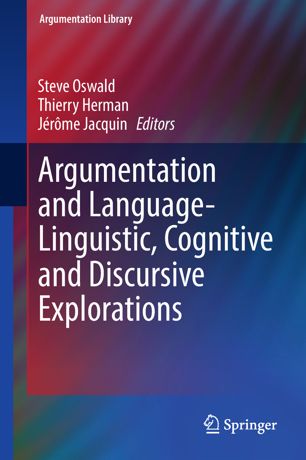

Most ebook files are in PDF format, so you can easily read them using various software such as Foxit Reader or directly on the Google Chrome browser.
Some ebook files are released by publishers in other formats such as .awz, .mobi, .epub, .fb2, etc. You may need to install specific software to read these formats on mobile/PC, such as Calibre.
Please read the tutorial at this link: https://ebookbell.com/faq
We offer FREE conversion to the popular formats you request; however, this may take some time. Therefore, right after payment, please email us, and we will try to provide the service as quickly as possible.
For some exceptional file formats or broken links (if any), please refrain from opening any disputes. Instead, email us first, and we will try to assist within a maximum of 6 hours.
EbookBell Team

5.0
80 reviewsThis volume focuses on the role language plays at all levels of the argumentation process. It explores the effects that specific linguistic choices may have in the production and the reception of arguments and in doing so, it moves beyond the first, necessary, descriptive stance provided by current literature on the topic. Each chapter provides an original take illuminating one or more of the following three issues: the range of linguistic resources language users draw on as they argue; how cognitive processes of meaning construction may influence argumentative practices; and which discursive devices can be used to fulfil a number of argumentative goals. The volume includes theoretical and empirical or applied stances, providing the reader both with state-of-the-art reflections on the relationship between argumentation and language, and with concrete examples of how this relationship plays out in naturally occurring argumentative practices, such as classroom interaction, and political, parliamentary or journalistic discourse.
This is a very original, timely and welcome contribution to the study of argumentation conducted with the tools of the language sciences. The collection of papers relevantly tackles key linguistic, discursive and cognitive aspects of argumentative practices whose treatment is underrepresented in mainstream argumentation studies by offering new and exciting linguistically-grounded theoretical accounts. As such, the volume testifies both to the vigour of the linguistic current within the discipline and to the high standards of scholarly commitment and quality that the younger generation is pushing forward. Without question, this book marks an important milestone in the relationships between linguistics and argumentation theory.
Christian Plantin, Professor Emeritus